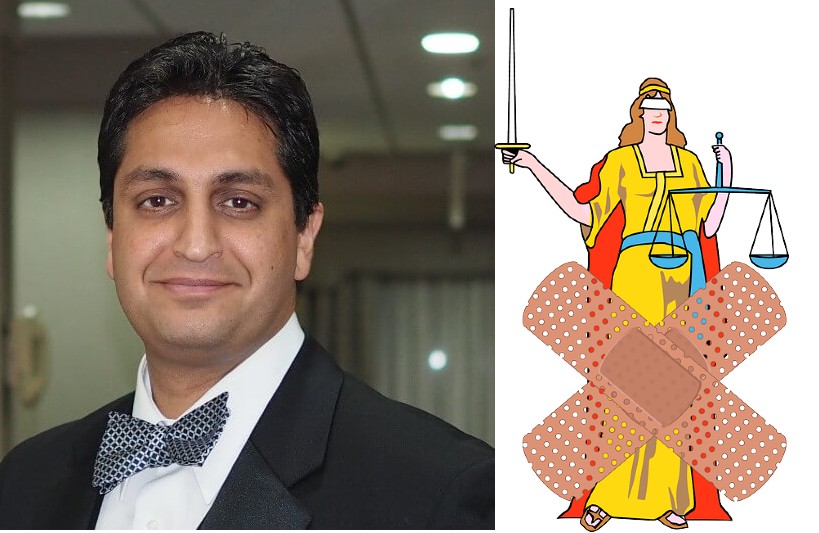In the ever-evolving landscape of legal disputes, few cases have the potential to shape the future of jurisprudence quite like United States v. Anand. This groundbreaking legal saga, centered around the deployment of cutting-edge artificial intelligence (AI) and data analytics in healthcare fraud investigations, has triggered a nationwide conversation about privacy, surveillance, and the delicate balance of governmental power. As it unfolds, both the legal community and society at large are beginning to grasp the profound implications this case may have on the legal terrain of tomorrow.
At the epicenter of United States v. Anand lies the unsettling practice of warrantless data mining, specifically targeting patient records within the DrCHRONO electronic health records system. Dr. Neil Anand, a respected healthcare professional, has been thrust into the spotlight as this case weaves a complex narrative of medical privacy loss in the United States and its far-reaching repercussions for the legal world.
The case’s significance extends well beyond the specifics of Dr. Anand’s predicament, touching upon several pivotal facets of modern legal practice:
Privacy Rights in the Digital Epoch:
In a world where technological advances have propelled data collection, storage, and analysis to unprecedented heights, the paramount question looms – what happens to individual privacy rights? United States v. Anand encapsulates these pressing challenges, underscoring the urgency of adapting legal frameworks to safeguard privacy rights in the digital age.
Governmental Utilization of AI and Data Analytics:
The case shines a glaring spotlight on the surging dependence of government agencies, notably the Department of Justice (DOJ) and the Department of Health and Human Services (HHS), on AI and data analytics to combat healthcare fraud. This groundbreaking technology has opened up novel avenues for law enforcement, but it has also ushered in the risk of potential privacy violations and governmental overreach.
Warrantless Data Mining and the Specter of Surveillance:
Central to this legal saga is the controversial practice of warrantless data mining and surveillance. Dr. Anand’s defense team vehemently asserts that evidence obtained through a flawed search warrant should be invalidated, emphasizing the dire need for transparent and constitutionally sound procedures in data collection.
Constitutional Rights and Forging Legal Precedents:
United States v. Anand could set pivotal legal precedents that will reverberate through time. It underscores the imperativeness of upholding constitutional rights, notably those enshrined in the Fourth Amendment, safeguarding against unreasonable searches and seizures. The case’s outcome may wield substantial influence over the interpretation and enforcement of these rights in the digital era.
Reevaluating Healthcare Fraud Investigations:
This case transcends its individual circumstances to reflect broader concerns within the healthcare industry. The utilization of data analytics to unearth healthcare fraud has brought forth disconcerting questions about the risk of innocent practitioners and providers being wrongly accused based on statistical anomalies. United States v. Anand stands as a catalyst for a fundamental reevaluation of the government’s approach to healthcare fraud investigations.
Championing Legal Counsel: The legal world is astir with discussions about the indispensable role of legal counsel in preserving individual rights and ensuring justice is served. Ronald Chapman and Coley O. Reynolds, Dr. Anand’s legal representatives, have emerged as pivotal figures in exposing potential unlawful data analytics and targeting packages. Their actions set an exemplary standard for legal professionals navigating similar cases.
United States v. Anand is more than just a legal wrangle; it is an exploration of the intricate interplay between technology, individual rights, and the power vested in government in the 21st century. The case underscores the urgency of adopting a balanced approach that honors privacy rights while addressing the challenges posed by healthcare fraud and other criminal activities.
As the case unfolds, the legal community, healthcare professionals, and society at large should remain vigilant, for the outcome of United States v. Anand has the potential to shape critical legal precedents and pave the way for the future of privacy rights, surveillance practices, and the deployment of AI and data analytics in legal investigations.
In an era where technological strides are revolutionizing the legal landscape, United States v. Anand is poised to become an emblematic case, offering profound insights into how the legal system can navigate the intricate confluence of advanced technology and individual rights, setting the stage for forthcoming legal battles in the digital age.

